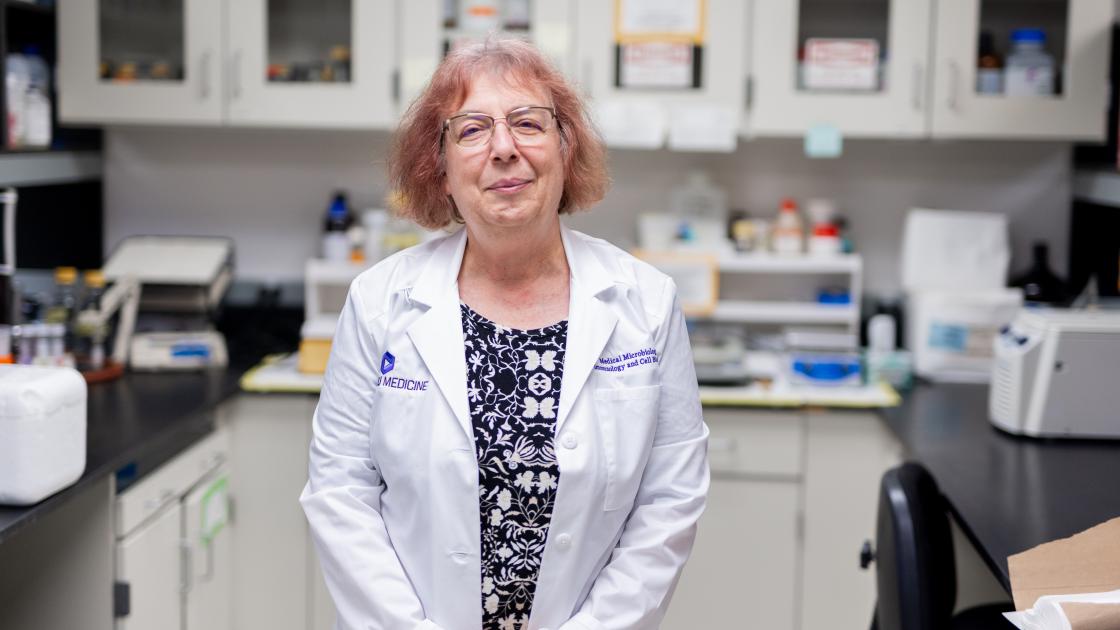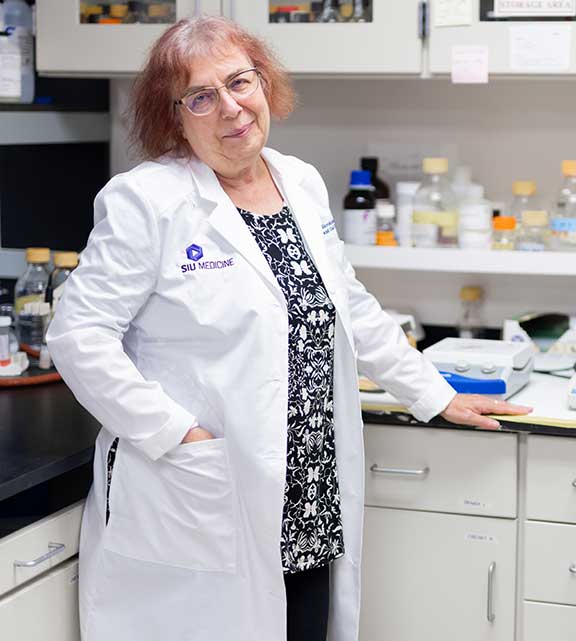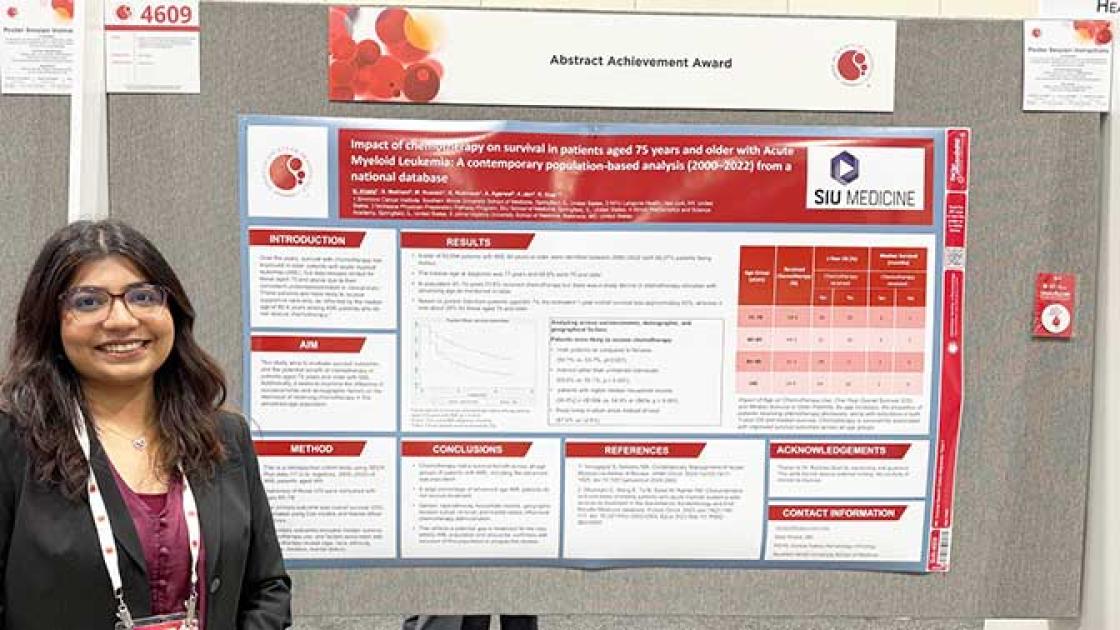
Science, scrutiny and staying power: Dr. Sophia Ran’s two decades of cancer research
The rules of scientific research have changed dramatically over the past two decades. Grants are more competitive. Expectations for rigor, repeatability and transparency are higher. And researchers must now juggle cutting-edge methods with rising regulatory demands while pushing for breakthroughs.
Quietly yet influentially, Dr. Sophia Ran has met those challenges head-on.
Since arriving at SIU School of Medicine in 2003, Ran, has maintained continuous funding from the National Institutes of Health (NIH), the Department of Defense and other agencies, a rare feat even among seasoned investigators. Her lab has reshaped how scientists understand tumor growth and metastasis by asking questions most researchers weren’t exploring.
“The NIH wants to fund different ideas and attack problems from different angles,” Ran said. “That’s always been my goal—to look where others aren’t looking.”
As a professor of medical microbiology, immunology and cell biology, Ran studies how cancer interacts with the immune and vascular systems. Her work has revealed how some cancer treatments may unintentionally encourage tumor regrowth and how the body’s own cells may create new pathways for cancer to spread.
Ran credits her steady funding to a combination of innovation, collaboration and institutional support. She credits her research team, including graduate students, interns and lab staff, with conducting rigorous experiments that fuel the lab’s discoveries.
She also points to SIU School of Medicine’s supportive research infrastructure, such as access to imaging, flow cytometry and animal facilities, which enabled her to conduct sophisticated, exploratory studies often more difficult to plan at larger institutions.
“It’s the kind of place where you know everyone’s name,” she said. “That makes a big difference when you need help quickly.”
 Bold questions build success
Bold questions build success
Ran’s lab investigates tumor microenvironment: the surrounding immune, blood and lymphatic cells that tumors depend on.
Her NIH-supported studies show that chemotherapy drugs, while toxic to tumors, can also trigger inflammation that fuels further tumor growth. Her team is exploring ways to monitor and reduce this inflammation to improve treatment outcomes.
She also made another groundbreaking discovery: bone marrow cells respond to cancer by producing precursor cells that can fuse with existing lymphatic vessels. This fusion may create new pathways for cancer to spread. This discovery challenges the long-held belief that tumors expand lymphatic networks solely by releasing chemical signals.
Her work reframed how scientists think about metastasis and opens the door to new therapies.
“Dr. Ran knows exactly what it takes to excel in science. Her uncompromising standards—for herself, her colleagues, and her students—reflect the kind of rigor that has helped propel SIU to R1 status,” said Shelley Tischkau, PhD, SIU chair of the department of pharmacology and colleague. “Her relentless pursuit of knowledge and unwavering commitment to discovery continue to advance the field, and we’re all stronger for it.”
Mentorship as part of the mission
Beyond her scientific acumen, Ran is known for mentoring the next generation of researchers. During her more than two decades at SIU School of Medicine, she’s trained dozens of graduate students, research assistants and interns, and she’s quick to note their role in the lab’s discoveries.
“I’ve been fortunate to work with dedicated people,” she said. “They helped move our work forward in ways I couldn’t do alone.”
“Not everyone stays in academic research,” she said, “but what they learn—self-discipline, objectivity, collaboration—those are skills that translate anywhere. I still hear from former students years later. That means something.”
Still forward-looking
Today, Ran continues to lead research that challenges traditional assumptions about cancer biology. Her current work delves deeper into the role of lymphatic vessels in breast cancer and how they might be targeted to prevent spread.
After 22 years, Dr. Sophia Ran’s career remains rooted in curiosity, discipline and a passion for discovery. Her focus is sharp, and she continues to ask bold questions that raise the bar for research funding.



